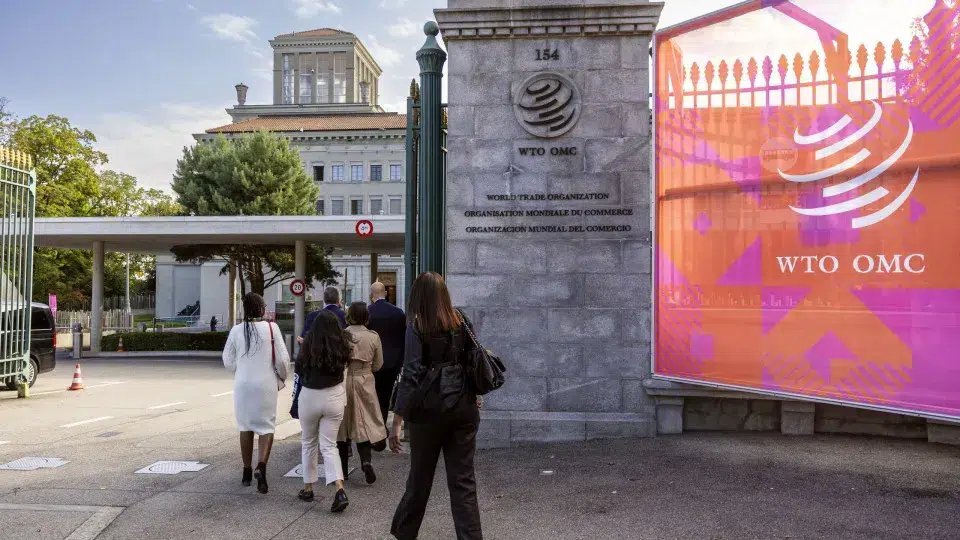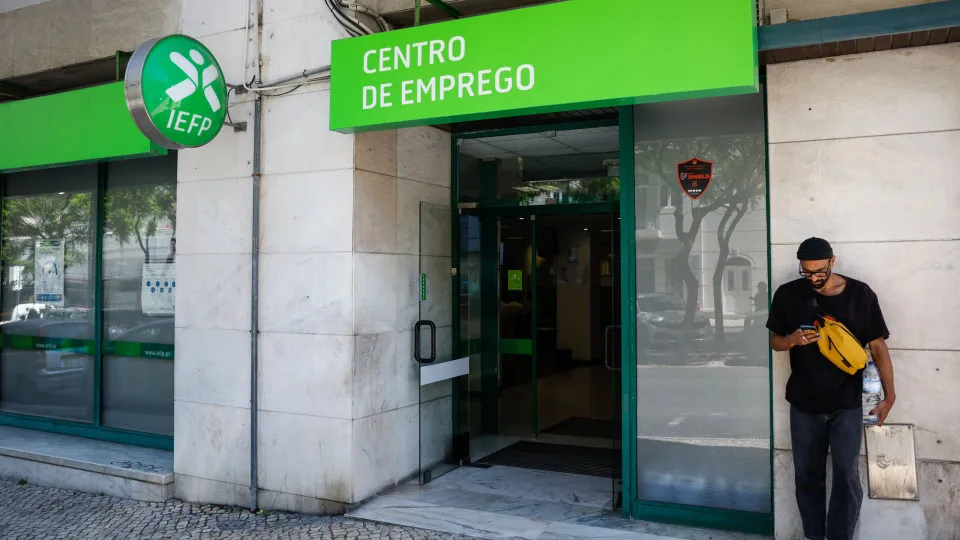“`html

The CDU candidate (a coalition between the Portuguese Communist Party and the Greens) for the Lisbon City Council, João Ferreira, has not ruled out a possible agreement with the Left-wing coalition led by socialist Alexandra Leitão, after the municipal elections. The communist considers “the various options for the city,” making it clear, however, that the party does not compromise its goals for municipal seats.
Among various measures discussed in an interview with Notícias ao Minuto, João Ferreira plans to bring five thousand homes into the real estate market over the next four years. To achieve this, he intends to refurbish vacant homes, increase property tax on the 48,000 private abandoned houses in Lisbon to pressure them back onto the market, and implement a policy obliging new private constructions to allocate part of the units for affordable rental.
For urban hygiene, the CDU suggests the recentralization of services within the municipality to eliminate disarticulation issues with parish councils; for security, it proposes opening more police stations to enhance community policing; and for mobility, it advocates expanding the metro network and doubling the city’s annual investment in Carris.
Starting with the strategy adopted by the CDU in these elections, particularly in Lisbon, by not joining the coalition led by Alexandra Leitão. Why was this choice made?
The project and vision that the CDU has for Lisbon are defined in opposition to almost everything that has been done over the last four years and significant aspects of the 14 years of PS management in Lisbon. During this period, the city’s development was left in the hands of real estate speculators, leading to exclusions in the enjoyment of the city, worsened mobility issues, and degradation of essential public services crucial for quality urban life, such as urban hygiene and cleaning. Municipal facility management conditions, such as sports and cultural facilities, also deteriorated.
So, was it ideological differences that caused this division?
No, these are differences related to the 14 years of PS management in Lisbon. PS has not yet conducted any self-criticism on this, implying that everything it did was well done and would continue if given the opportunity. We believe not. There were wrong choices during that period, and particularly, that PS’s stance prolonged during Carlos Moedas’s current mandate, over the last four years.
Essentially, PS enabled some of the worst aspects of Carlos Moedas’s governance. When we look at situations such as the unconditional approval of municipal budgets, all budget amendments, and tax-related decisions, Carlos Moedas couldn’t have made these negative decisions for the city alone. All this was assured by PS.
Alexandra Leitão has already said that after the elections, given the results, she is open to talking to CDU. Is CDU also open to this dialogue?
CDU is always open to dialogue. Throughout this mandate, we engaged with all forces, including the current administration. We have been a critical opposition, never hesitating to point out what was wrong. We have also been a constructive opposition, constantly proposing, which we believe is the role of the opposition. We do not view the opposition as a passive observer for four years, approving everything blindly submitted by the city governance. Unlike PS, which, to a large extent, blindly approved budget choices, budget amendments, tax decisions, and urban planning permits. We do not share this vision of the opposition, and throughout these years, we have consistently played a propositional role, talking to everyone, both the opposing forces and the city government.
If, as many polls suggest, the elections result in a technical tie and CDU votes become decisive, possibly enabling Alexandra Leitão’s coalition to assume the city council, would CDU accept an agreement?
The election results are undecided, and CDU is currently contending for all responsibilities, including the presidency of the Lisbon City Council. CDU has been on the rise, while others have had the opposite evolution regarding popularity and support. We do not set a limit on how far we can go. Instead, we are ready and willing to go as far as Lisboans want. We believe we have the qualifications that other candidates do not have to manage the city. That is our focus right now. After the elections, we will assess the resulting scenario. It is essential to acknowledge CDU’s foundational stance, which values the characteristics of local power. Municipal executives are plural. Some wish otherwise and believe they shouldn’t be. For example, the Socialist Party believes municipal executives should be of a single color. That is not our understanding. Depending on the outcome of the elections, and knowing that we elect not merely a president but a president and 16 councilors (17 members of the municipal executive), we will see what options are available to the city. Naturally, we will consider all available options – we will not fail to do so. We have already shown a commitment not to abandon vital objectives or principles in exchange for positions. Positions are only important if they enable us to achieve our city goals.
Moving on to CDU’s specific electoral program for the city of Lisbon, let’s start with housing in the capital. CDU’s electoral program includes a measure discussing a “green lane for non-speculative housing.” What does this mean exactly?
This means creating municipal services with the capacity not only to incentivize these solutions and promote them but also to expedite their approval and processing quickly.
Solutions… are you talking about actual house constructions?
Essentially construction and rehabilitation. Construction of new housing, either by direct promotion by the Lisbon City Council or in partnership with cooperatives or similar partnerships. It is one of the solutions we support, following examples from other countries where the council partners with community organizations to produce housing on municipal land. Not through the municipality, but through the partner organization, eliminating the speculative land value from the final house price equation, which brings the final house cost closer to the construction cost.
Something similar to what happens in cooperative housing.
In a way, yes. It is akin to what occurs with cooperatives. We need to ensure this ‘green lane’ in urban planning services, supporting anyone mobilizing for these solutions. We must ensure quick project approvals. This includes aiding in project development and ensuring quick project approvals. That is the essence of a “green lane for non-speculative housing.”
In your program, you also mention 48,000 empty houses in Lisbon. What is the plan for these houses, considering they are privately owned?
Those houses are private, so the Council cannot dispose of that property. However, it can use currently available legal tools to incentivize bringing these houses to the market, reducing their prices. 48,000 houses is a significant number. To put this in perspective, the Council’s Municipal Housing Charter plans to build about 10,000 houses in ten years. We are talking about 48,000 already available today and empty.
How can the Council accomplish this?
The Council cannot dispose of them because they are private properties. But the Council has instruments to incentivize their market release. One is property tax increases. Homes vacant for more than X years, not even paying water bills, among those 48,000 – more than 30,000 fit this description.
But aren’t many of those houses uninhabitable?
The Council must assess that. Many are habitable. Some might not be. There, the Council can work with owners through existing municipal programs. For example, the Council has a program since 2018, initiated by CDU – the Affordable Rent Program (PACA), which includes collaboration with owners willing to place their properties in an affordable rental pool. The Council can work with these owners to ensure they join this affordable rental pool, providing appropriate incentives.
So, the Council would act as an intermediary between the owner and the tenant.
Exactly. Mobilizing vacant properties can occur through incentives or penalizing their vacant status, involving property tax increases. Currently, 30,000 out of those 48,000 houses would qualify for increased property tax, but only 6,000 to 7,000 are taxed higher. Hence, there is significant room to use this tool to encourage these houses’ market entry for rent or sale, also impacting rental and sale price containment.
Based on your party’s calculations, how many houses does CDU believe it can bring to the market in the next four years?
We plan to follow the Municipal Housing Charter, which targets 10,000 to 11,000 homes in a decade. We find it appropriate in this first term to mobilize around 5,000 homes.
Including both vacant homes and new constructions?
Including various solutions. Not all will be direct promotion by the Lisbon City Council; part will be direct promotion by the Council, constructing or rehabilitating uninhabitable properties it owns. Then, other solutions I’ve mentioned come into play: public-community and public-public partnerships, cooperative solutions, and inclusive zoning, mandating new housing developments to allocate a portion for affordable rent.
But this is not a new measure. It is already outlined in the document Options of the Plan 2019-2022.
But it hasn’t been implemented. It is in the Municipal Housing Charter but hasn’t moved forward yet.
Moving to another topic, security, which has been highly discussed by the Portuguese recently. CDU has ten measures for security in its electoral program mainly focusing on reopening police stations. Where are the professionals for these stations, given the current shortage of police resources?
Yes, they need to be trained. They must be trained, and conditions must be ensured for training. We recognize the human resources shortage. Even new police training programs have unfilled slots. The only solution is improving this profession’s social conditions to attract new people, but this falls under the Government’s responsibility, not Lisbon City Council.
Isn’t the CDU’s proposal to reopen more police stations futile if there are more stations but no professionals?
We cannot accept that these professionals do not exist. They must be trained; they must exist. There is a professional shortage, and that deficit needs addressing. Furthermore, in distributing the existing personnel, there was a trend over the years to concentrate forces in large police stations, large concentrations. We believe this was a mistake. The super-police-station policy, which led to the closure of community-based and neighborhood police stations, was wrong. We advocate reversing this approach, organizing personnel to favor community, neighborhood, and parish presence, hence reopening police stations. We do not want empty stations; we want them staffed.
When stations closed, the primary justification, as we heard from PS and PSD leaders, was: “We closed stations because we need police on the street, not in stations.” As a result, we have neither officers in stations nor on the streets today. This is the issue.
We believe in a preventive approach to security, requiring multiple measures, including close community policing—building neighborhood ties with residents, which facilitates creating a secure atmosphere.
And it addresses the public’s pervasive insecurity feelings.
It does. Examples of closed neighborhood police stations led to increased public insecurity perceptions. When a station ceases operations, for example, it often accompanies a rise in minor criminal activities previously absent or minimal when the station was operational. The closure of the district’s Carnide station serves as a prime example, shut down with the pretext of inadequate facilities while operating in city-owned premises. The municipal obligation to facilitate refurbishments, eliminating facility inadequacy as a closure reason, was unmet during PS’s and Carlos Moedas’s tenure. It deterred crime previously through preventive approaches benefitting the public. Close security forces-resident ties foster a secure environment.
Another crucial imperative is addressing the intertwined security issue with drug consumption and trafficking-related crimes. Effective solutions aren’t in place for integrated health system access and rehabilitation pathways to curtail associated criminal activities.
Security must be approached holistically, entailing public-space intervention, environmental planning, lighting solutions, and urban furniture quality. Properly designed environments enhance expansive urban spaces conducive to safer streets. Preventive tactics extend to improving public-space conditions, crucial for sustainable mobility and transport optimization strategies.
On urbanistic solutions, concerns about Lisbon’s urban hygiene and space requalification persist. CDU’s primary strategy to rectify urban hygiene issues involves recentralization in municipal control. Will this solve the problem?
Recentralization itself is insufficient; comprehensive action is necessary. Proposing task delegation without appropriate resource allocation is counterproductive. Essential urban cleanliness actions demand integrated city-scale planning, necessitating municipal oversight recovery. The council restored no capabilities previously exercised citywide—now isolated to limited actions, including waste collection but not imperative street cleaning.
We advocate and foresee urban-scale intervention, supporting municipal competence, fostering central oversight, and emphasizing effective implementation of transferred parish-council responsibilities. Adequate resource provision and careful competence allocation remain critical.
On mobility: CDU proposes enhancing public transport without addressing major traffic congestion issues affecting Lisbon residents. How will CDU tackle this problem, given it affects daily commuters?
Enhancing public transport services prioritizes commuter attraction from individual to public transport modes. Expanding public transport capacity reduces individual transport reliance, directly enhancing public transport’s market share.
However, metro expansions predominantly serve Lisbon residents and not the predominant external workforce commuting daily. This perpetuates existing traffic congestion problems.
The metro, primarily confined to Lisbon, inherently functions as a metropolitan transportation solution. Extending metro services beyond Lisbon, notably to Loures and the western zone toward Oeiras, aligns with longstanding developmental aspirations, stalled by shortsighted central-city endeavors, specifically criticized for prioritizing the circular line.
The Council unrelinquishingly influences metro network expansion as a non-exclusive decision-maker among multiple instrumentalities.
Carrisquequently advocates focusing on avenues facilitating operational improvements and targeted investment enhancements, aligned with improving Carris and optimizing comprehensive metropolitan mobility.
Carris necessitates heightened investment—an annual doubling target enhancement from 27 to around 54 million euros to address insufficient investments. Establishing more routes, vehicles, and service adjustments supplemented by strategically reformulating existing aging network structures necessitates immediate intervention.
Significantly enhancing service quality ensures systemic transport efficacy, essential but unsupported by current endeavors toward unrestricted fare reductions providing immediate cost-effectiveness.
But inevitably, buses too get caught in existing traffic jams, inducing significant delays?
A shortfall in adequate quantity notwithstanding, remedy emerges from reserving dedicated, unobstructed transport corridors and precluding unauthorized utilization.
Improved commercial speeds primarily depend on implementing protected circulating corridors for exclusive public transport use across suitable city streets, supplemented by parking management encouraging peripheral parking before entering urban centers.
Would expanding infrastructure like roads facilitate segregation for public transport lanes?
Strategic adaptation not only enhances dedicated bus lanes but simultaneously mitigates potential unauthorized uses and recurrent systematic constraints limiting transport speeds.
Corroboratively adaptable infrastructure involving differentiated vehicle dimensions in varying city sections further reinforces network effectiveness, integrated within Carris’s operational strategy, and overseen by Transportes Metropolitanos de Lisboa, embodying multi-municipality public transport stewardship.
Inter-municipal transport propositions should encompass providing viable facilities allowing car exit and seamless integration into public transport networks, strategically encouraging route-specific modifications minimizing localized travel distances.
How does encouraging reduced reliance on short-driving distances feed into systemic solutions?
Converting underutilized private parking into municipally managed long-term options signifies substantial shifts aiding transport solutions, capitalizing on efficiently regenerative parking resources enhancing commuter accessibility.




